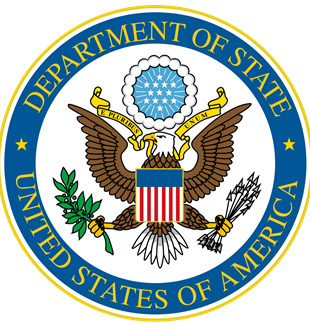
The Story of a New Beginning
The story of a State Department official, and how sharing his professional problems with his friends has given him a different outlook on work.The final months of 2002 and the first ones of 2003 marked a terrible period in Washington, charged with tensions and behind-the-scenes struggles that only now, after several years, are beginning to come to light in all their complexity. The internal apparatus of the American government was engaged in gathering information and making preparations for the war in Iraq looming on the horizon.
At the highest levels, epic clashes were underway in those months between the White House, the Pentagon, the State Department, and the CIA. The logic of diplomacy daily engaged with that of military might, against the background of an America made uneasy and willing to do anything to hunt down terrorism on a global scale, after the lesson of September 11, 2001.
The state of mind at the top of the Bush administration inevitably echoed to lower levels, to the offices that daily decided on the United States’ foreign policy or domestic security provisions. The daily tension was palpable, a reality that during those months also affected Mark Danner, a State Department official leading a team on a delicate project.
Difficult Position
Work had brought him first on a collision course, then in direct conflict with another government team. The result was that Mark found himself in an increasingly difficult position, in a key sector of the administration at a moment when everyone was on edge. “Initially, I dealt with the problem on my own,” he relates, “without talking to my friends in the Movement. I was playing everyone else’s game, considering the others, the team on the other side of the barricade, as the absolute enemy, to be annihilated.” During that period, looking back over his life and reflecting on his many choices, Mark realized that both in work and in his most important family decisions, his instinct to decide on his own initiative, without truly talking things over with others, very often dominated.
In Danner’s case, it certainly wasn’t a question of the Movement’s lack of attraction for him. To the contrary. The encounter with CL had changed his life profoundly.
Danner grew up in a family marked by the figure of his father, a professor of Islamic studies, who ended up in the devastating sphere of a fanatical Islamic organization. Mark spent his youth trying to find direction in the midst of the manifold cultures and religions to which he was exposed. Faithful to his mother’s Christianity, but fascinated by the Arab world, especially by the tormented reality of Lebanon in the 1980s, he decided to dedicate his studies to the Middle East, spending long periods in Israel and Egypt as well. His academic preparation and deep knowledge of the Arab reality made him an ideal candidate for American diplomacy, and Mark entered the Department of State, serving first abroad, and then in Washington.
Method of Judgment
In the meantime, he had encountered the Movement and a new beginning, accompanied by the fascination of having discovered a method of judging reality capable of becoming, for example, the modality for also judging ideologies such as those of the Baath Party or the Muslim Brotherhood. But a further step was needed. “I realized,” Mark says, “that all the choices about my profession, including the decision to leave my diplomatic position abroad and return to the States, I had made without talking to any of my friends. My objection was, “How can they understand what I do, the political intrigues of my work?”
In the face of the increasingly difficult situation at the end of 2002, however, Mark decided to risk engaging himself fully. “You guys, I’m in trouble,” he told a group of some friends one day, people whose work was light-years away from his government job, but who shared with him the journey together in the Movement.
“When I finally committed myself to the people who had changed my life,” Mark recalls today, “I understood that it’s possible to say that things are not entirely black or white, as it seemed to me in that period of open conflict. Openness is possible. I was taught about the possibility of friendship, and of a different approach. It is a new method of knowing and judging, born of our unity. I was able to forgive, and I was also forgiven.”
Out of this, a surprising case of collaboration between rival teams at the heart of the American government arose, surprising everyone as well for the creativity that flowed out on the professional level.
A seed of hope sown in a place where it seems that the powers that be are willing to do anything to erase a different human gaze at the workplace.